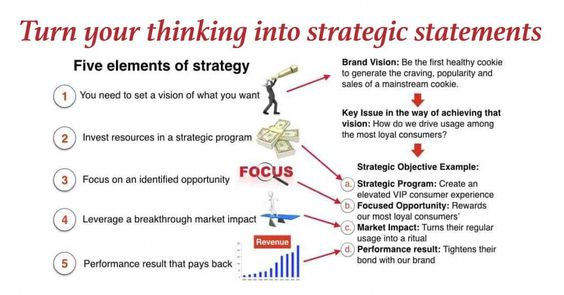Developing strategic thinking skills is essential for achieving success in both personal and professional life. It involves evaluating complex situations, making long-term plans, and anticipating potential outcomes. In this article, we discuss eight practical tips to help you develop your strategic thinking skills.
Understand the Big Picture
Strategic thinkers have a deep understanding of their organization’s goals and objectives. To develop strategic thinking skills, start by acquiring a broader perspective of your company. Learn about the organization’s history, vision, mission, and internal structure. This knowledge will help you identify gaps and opportunities, and make informed decisions that align with the organization’s overall strategy.
Identify Your Key Performance Indicators (KPIs)
KPIs are specific business metrics that help you track and measure progress towards achieving your goals. To develop strategic thinking skills, identify the KPIs that are most relevant to your role and department. This will help you focus on areas that impact the organization’s bottom line and prioritize your efforts accordingly.
Practice Active Listening
Listening is a critical component of strategic thinking. When you practice active listening, you seek to understand the other person’s perspective, feelings, and needs. This helps you identify patterns, assumptions, and biases that could impact your decision-making process. To practice active listening, pay attention to non-verbal cues, ask open-ended questions, and summarize what you heard to ensure you understood the message correctly.
Learn to Collaborate
Collaboration is crucial in strategic thinking, as you need to leverage multiple perspectives and skills to achieve your goals. To develop your collaboration skills, seek out opportunities to work across departments and teams. This will help you understand different workstyles and perspectives, build relationships and partnerships, and find common ground to achieve shared goals.
Stay Informed
Staying up to date with industry trends, best practices, and emerging technologies is essential for strategic thinking. Set aside time to read industry publications, attend conferences, and learn about new technologies or tools. This will help you identify potential opportunities and threats, stay ahead of the curve, and develop innovative solutions that benefit your organization.
Focus on Details
Strategic thinking involves a blend of big-picture thinking and attention to detail. You need to consider both the broader context and the specific details that impact your decisions. To improve your attention to detail, practice mindfulness, break complex problems into smaller, manageable tasks, and learn to prioritize based on importance and urgency.
Embrace Risk
Taking calculated risks is an essential component of strategic thinking. By embracing risk, you learn to take calculated risks that have a potentially high payoff. To develop your risk management skills, identify potential risks, weigh the pros and cons, and explore alternative strategies if things go wrong.
You might find these FREE courses useful
- Strategic Management Certificate | IIM Kozhikode | Coursera
- Strategic Leadership and Management Capstone
- Strategic management: Be competitive
- Strategic Sales Management Final Project
Build Flexibility
Finally, strategic thinking involves the ability to adapt to changes and unexpected challenges. To develop your flexibility, stay open-minded, anticipate potential changes or disruptions, and prepare contingency plans. This will help you stay nimble and agile, and respond effectively to changing market conditions, customer needs, or internal challenges.
In conclusion, developing strategic thinking skills takes time and practice, but the rewards are significant. By focusing on these eight tips, you’ll be well on your way to becoming a strategic thinker who can help your organization achieve its goals and thrive in a rapidly changing world.
